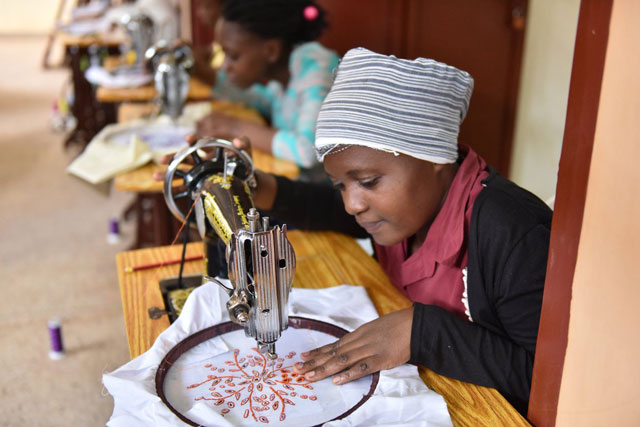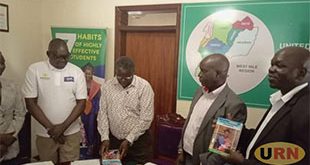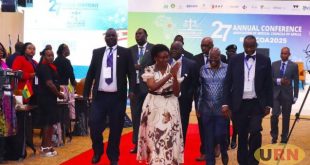
Nabuyondo is one of three females that sat for examinations in Science related programs during the November/December Business, Technical and Vocational Education Training-BTVET 2019 examinations. Results of the examinations that were released last week show that out of 5,251 students who sat for the examinations, 991 were females. Out of this number, however, only three of them majored in science-related fields.
According to educationists, not so many females are interested in Science related BTVET courses because of the negative attitude that they have towards sciences. Even for Nabuyondo, the trek was steep, and oftentimes, wanted to switch programs.
“There are times when you get tired and just want to give up. Some of the work is hard and includes the usage of heavy equipment like tractors which can be a challenge the first time you try to use them,” Nabuyondo said.
Onesmus Oyesigye, the Executive Secretary of UBTEB says that the influence of culture and social norms influence what courses that women opt for when it comes to any sort of tertiary education.
Oyesigye adds that shunning science-related courses is leaving many of women unemployed because they leave all opportunities there for men.
Hajjat Safina Musene, the commissioner for BTVET at the Ministry of Education says that many females keep away from Science related courses because they believe that they are not meant for women. “We find more females than males in courses like business and nursing. But when it comes to engineering, then we have more males,” Musene said.
Musene says they are trying to come up with measures to changes the current scenario. This includes new programs to encourage girls to join like offering them free accommodation as an incentive.
In addition to this, the ministry has come up with other incentives like offering bursaries, admitting an equal number of females and males into different programs. She is optimistic that such measures have led to an increase in the number of females that have picked an interest in science-related courses.
“Three years ago, females made up one percent of the number of students pursuing courses in engineering. Today, we have as many as eight percent of our students in such courses,” Musene said.
UBTEB chairman Dr Silver Mugisha says that more sensitization is needed to show females that there are no courses designed for one gender.
During the release of the UBTEB results recently, the Minister of Education and Sports said that females have the potential to make some of the best technicians and electricians. She asked training institutions to admit more female learners sponsored by the government on affirmative action.
*****
URN
 The Independent Uganda: You get the Truth we Pay the Price
The Independent Uganda: You get the Truth we Pay the Price



